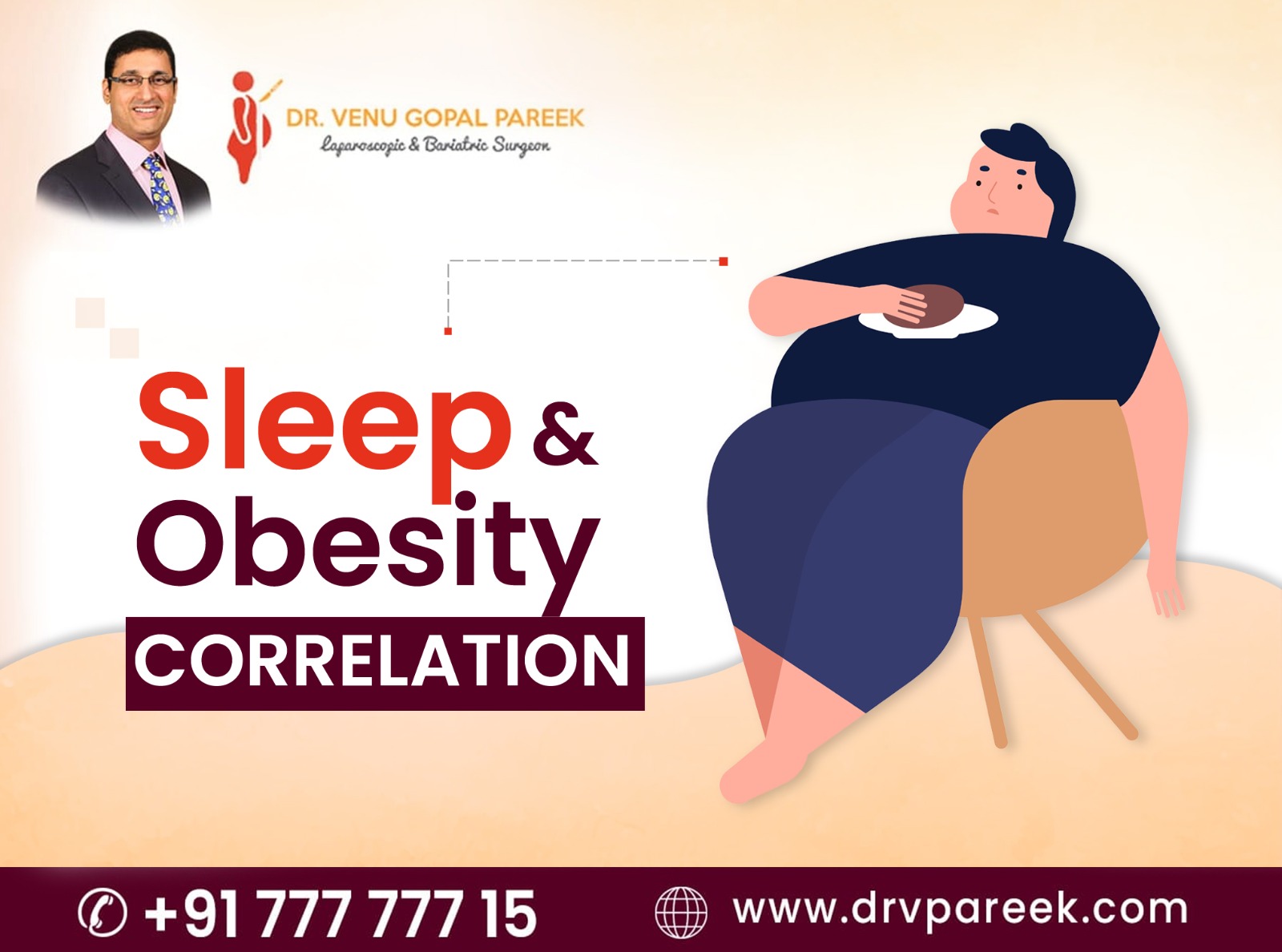
Sleep and Obesity correlation ?
It used to be widely believed that a person’s weight was only influenced by their diet and level of activity. However, we have come to realise that behaviour alone doesn’t fully account for one’s weight gain. There are many other factors that have their own role in one’s gaining or losing weight, which include genetics, Economic status, local environment, stress levels, food habits, and overall health. Additionally, the quality of your sleep can also influence your ability to lose weight or gain it, since sleep deprivation is a risk factor for obesity.
Obese people are concerned by the fact that sleep deprivation not only promotes weight gain but that being overweight also makes sleep problems worse, which could worsen the metabolic mechanisms that result in weight gain.
With advancements in the field of medicine, obesity or overweight can be managed, which in turn improves sleep and reduces the negative impacts on their health caused by sleep deprivation.
The link between sleep and obesity
Actually, lack of sleep leads to hormonal imbalances that control hunger in the body, which results in excess food intake and weight gain. The hormones leptin and ghrelin control your appetite, and when you don’t get enough sleep, these hormone productions in your body are altered, which makes you feel more hungry. Lack of sleep is connected to the production of low levels of growth hormone and high levels of cortisol, which are linked to obesity. Additionally, sleep deprivation might affect how your body processes the food you consume (impaired metabolism).
Unfortunately, the impact of sleep deprivation on weight is not just restricted to chemical changes in the body. It makes us more likely to eat high-calorie, unhealthy foods for an instant boost in energy. Late-night foods eventually contribute to weight gain. In addition, adults who don’t get enough sleep tend to be less physically active, probably because sleep deprivation makes people tired and sleepy during the day.
How does obesity affect sleep?
Obese people are more likely to experience insomnia or difficulty falling asleep compared to normal people. Furthermore, some studies support the statement that obesity can increase drowsiness and fatigue during the daytime, even though people sleep well throughout the night.
According to some researchers, obesity can have a negative impact on sleep patterns and metabolism, which eventually lowers the quality of sleep. It’s also apparent that being overweight itself has certain physical effects that disturb your quality of sleep.
Sleep problems that overweight people frequently experience
There are numerous medical conditions that interfere with sleep, and some of them are more common in overweight or obese people. The coexistence of the conditions mentioned below can worsen insomnia and other sleep problems induced by obesity.
- Obstructive sleep apnea (OSA)
- Gastroesophageal reflux disease (GERD)
- Anxiety
- Insomnia
- Depression
- Asthma
- Osteoarthritis
How do I get a good night’s sleep?
- Maintain a regular sleep-wake schedule to ensure that you always get the sleep you require.
- Be mindful of the foods and beverages you consume. A light snack is always good; moreover, obese people should avoid heavy meals, tobacco, caffeine, and alcohol before going to bed.
- Make a calm environment; the ideal atmosphere is one that is dark, quiet, and cool.
- Try not to take a nap during the day for longer than 30 minutes.
- Regular exercise can help you sleep better, so include it in your daily routine.
- Learn stress management techniques like meditating and practicing deep breathing.
- Reduce screen time—spend less time on gadgets like phones, TVs, and other digital devices before bed because they stimulate your brain.
A healthy lifestyle includes proper nutrition, exercise, and getting enough sleep, all of which are vital to weight management. Developing good sleeping habits will improve your sleep quality and help you manage your weight!
However, some people have a hard time maintaining an ideal weight even though they are sleeping well and following other instructions. If you are one of them and need help, we can help you. Consult Dr. Venugopal Pareek, the best bariatric surgeon in Hyderabad. He can help you lose weight through bariatric surgery, often called weight loss surgery. Millions of people around the world are opting for bariatric surgery because of its advantages, like faster weight loss and reducing the risk of obesity-related problems like diabetes, high blood pressure, heart problems, etc.
For more detailed information, book an appointment with the doctor. You can reach us at +91 +91777 77715 for booking your slot.







